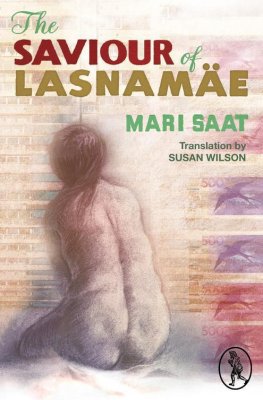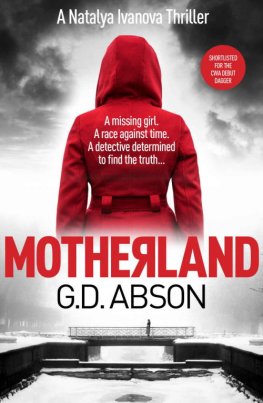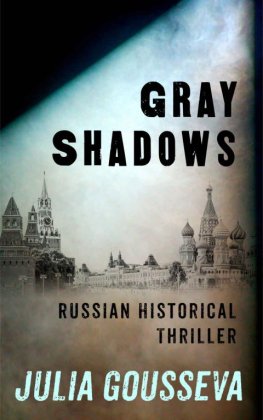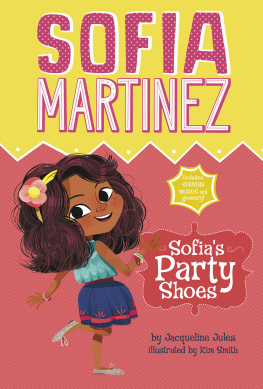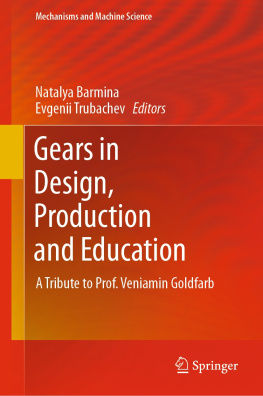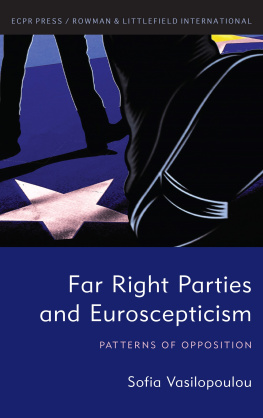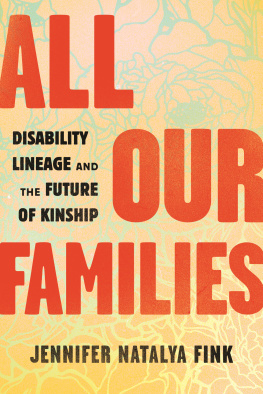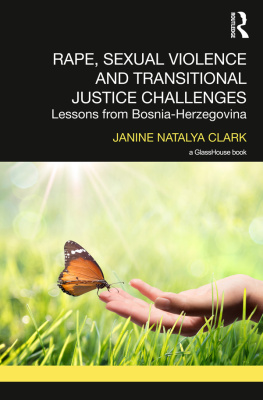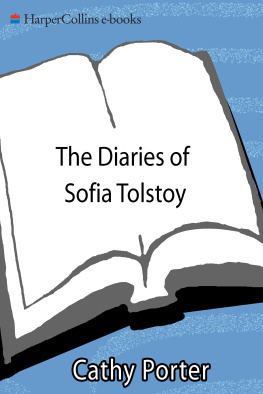Mari Saat - The Saviour of Lasnamäe
Here you can read online Mari Saat - The Saviour of Lasnamäe full text of the book (entire story) in english for free. Download pdf and epub, get meaning, cover and reviews about this ebook. City: Glasgow, year: 2015, publisher: Vagabond Voices, genre: Prose. Description of the work, (preface) as well as reviews are available. Best literature library LitArk.com created for fans of good reading and offers a wide selection of genres:
Romance novel
Science fiction
Adventure
Detective
Science
History
Home and family
Prose
Art
Politics
Computer
Non-fiction
Religion
Business
Children
Humor
Choose a favorite category and find really read worthwhile books. Enjoy immersion in the world of imagination, feel the emotions of the characters or learn something new for yourself, make an fascinating discovery.
The Saviour of Lasnamäe: summary, description and annotation
We offer to read an annotation, description, summary or preface (depends on what the author of the book "The Saviour of Lasnamäe" wrote himself). If you haven't found the necessary information about the book — write in the comments, we will try to find it.
The Saviour of Lasnamäe — read online for free the complete book (whole text) full work
Below is the text of the book, divided by pages. System saving the place of the last page read, allows you to conveniently read the book "The Saviour of Lasnamäe" online for free, without having to search again every time where you left off. Put a bookmark, and you can go to the page where you finished reading at any time.
Font size:
Interval:
Bookmark:
Mari Saat
THE SAVIOUR OF LASNAME
Translated by Susan Wilson
A soul butterfly thought Dmitri Dmitrievich and flinched but butterflies werent out at this time of the year, were they? There are no butterflies in winter.
Natalya Filippovna had little reason not to be content with her life: she earned the average wage in Estonia, sometimes a shade more. No small thing for a woman on the wrong side of forty-five who couldnt speak the official language. Actually, that wasnt entirely true she could understand it and even say a few simple things; it was just that she couldnt shake off her thick accent, and the writing was so foreign-looking and after all thered been no need for it before: the Estonians all used to speak Russian, but now well, the younger ones couldnt and the older ones wouldnt
Natalya Filippovnas life had, broadly speaking, settled down nicely: she had a handsome two-room flat in Lasname that had been allocated to her thanks to the birth of her daughter. Well actually, thanks to her job in the building industry and the birth of her daughter: she had been one of the last people to be allocated a flat by a workplace and her daughters birth had pushed her ahead of the competition ahead of unmarried women who had not produced a child. Women like that had had to stay in the hostel and there was no dishing out flats to people after that. Mind you, shed have had no flat at all if shed stayed on at the kindergarten there were never any flats for kindergartens to allocate. Shed have been happier at the kindergarten though
Nowadays shed have had to buy the flat herself or build it the state wouldnt give you anything any more, but what could you buy or build when even a shack cost over a hundred thousand, and the only way prices ever went was up, but take-home pay was only four and a half thousand, in a good month five or even five and a half if youd had to work Saturdays and Sundays or if thered been rush orders But one and a half thousand of that was swallowed by the cost of the flat once youd taken off the electric and telephone, another one and a half went on food, and the remaining one and a half was simply not enough to make ends meet for the two of them. They always got through another two. If only her daughter would eat sausage stew and fried potatoes, but she wouldnt. She would not eat meat. She wanted fruit and puddings And travel tickets, soaps, shampoo, tampons her daughter needed tampons too now And there was the constant need for money for school or art school exercise books, paints And that music player that she had to have on all the time just look how much the batteries for that cost. Good job that she could get clothes second-hand, but shoes really had to be bought from a shop or the market. Mind with the market you never had any way of telling how long they were likely to last. Once a sole wore right through in two weeks, and there was no one you could complain to All told, shed never had as much as five hundred spare in a month
Natalya Filippovna had a dream that if she could scrape together ten thousand over the winter, shed be able to afford a proper holiday for the two of them somewhere in Europe They always ended up arguing about it Sofia wanted to go to Holland where there were canals and tulip fields, but Natalya Filippovna wanted to go somewhere where there were mountains warm sun and jagged snowy mountain peaks Last time shed been to Crimea it felt like aeons ago It was still deep in the Soviet time as the Estonians called it. Everywhere was one great Union no need for any visas. You just made up your mind and off you went to Crimea. Using a travel voucher to boot There were no real snowy peaks there of course, but there was hot sunshine and the sea was a warm, dark blue, not always cold and grey like here. It was there that shed met Sofias father Sofias father it almost felt out of place to talk about him like that because there ought to be something solid about a father, even a touch of menace, but instead he was like a faint, warm breath of wind that merely caresses you and vanishes, or the headiness of a light, clear wine that evaporates, as if it had never existed, just like a dream
That was all to the good to Natalya Filippovnas way of thinking. She was plenty old enough already to be happy with just the child, and shed never hungered after men, unlike some of her friends who settled for the bluster and even the beatings of a drunk just so long as they could have a shag Shed been through all that from shagging to beatings, when as a young woman she was married to Corporal Grisha and as a result moved thousands of kilometres away from home to find herself here on the shores of the grey sea in the wet land of the Estonians Actually theyd been through several places before theyd ended up here But it was here that shed thought for the first time that it wasnt right. It was that time when she was lying in hospital that shed thought that it wasnt right for her husband to beat her, never mind whether he was drunk or in a bad mood, and cause a miscarriage she shouldnt settle for it Perhaps she started to think that way because of the climate here or the people the fact that the people here were so correct and the women were always discussing what was right and what was wrong not he loves me he loves me not or lucky and unlucky but simply right and wrong or who has the right as if there were a ruler inside them that could always draw the line between right and wrong, and if you were always on the side marked right then everything was fine. The women here often lived alone, brought up their children alone, not always because their husbands had left them, but because they felt it was right. Natalya Filippovna liked these independent-minded women. Why couldnt she live like that too? She had the feeling, however, that it was only here in this wet, grey land that she would be able to think and live that way if she went back to somewhere in Russia, perhaps beyond the Urals again where she had come from, she would have to live life differently, accepting, putting up with But she did not want to!
And anyhow, her child was enough for her. The child that shed found herself expecting, rightly or wrongly, that was something else she really wasnt sure about Quite simply, she wasnt so alone she had someone to live for And work was stressful enough as it was. Watching the soaps on TV was as much as she could manage in the evenings Earning more than the Estonian average wage was not an easy thing to do. As for having a man to look after as well no way!
Natalya Filippovna worked in a large electronics factory. There she soldered components the size of specks on to circuit boards. She worked on the circuit boards that were fitted inside machinery, telephones or any other equipment, making the pathways through which electrons would flow, quick as a flash, at lightning speed The work was precise and quick, they said it was for people under forty-five, but she managed all right because she had always been precise and nimble enough. She had no problem with the work in a warm clean room. Of course she had to do shifts and when there were rush orders she had to be there on Saturday and Sunday too, but she was paid extra for that and the factory bus took her to and from home. She was already over forty-five but productivity speed and quality was monitored and she was always rated a little above average. The key thing was to last out at least the few years until her daughter had finished school. Then shed be able to stand on her own two feet, not that there was any need for her to find a job mind you nowadays even young people had trouble finding a job, although granted, Sofia could speak the language but she was so how to put it? Woolly-headed? No, that wasnt the right word because she was doing very well at school But she was unworldly with such dainty long fingers and a build like a beanpole. Whod employ someone like her, and what work would they give her? Perhaps she should try and get into a university on a scholarship so that she wouldnt have to pay. A student loan would be dreadful. It would hang over her for half her life. A loan of any kind was an awful thing Things were better in the olden days. You couldnt get loans there was no temptation to because there was no opportunity. And you could always get work, you could always get some kind of work, you didnt have to suck up to the boss. If the boss yelled at you, you could yell back, but nowadays no one ever dared raise their voice. Granted, there had been nothing in the shops to buy, but people still had food to eat and no one was turfed out of their flat If, of course, theyd been lucky enough to have one there was no chance of a flat for people working in kindergartens but no one had had to beg either. Just try talking about it when Sofia was in earshot though, she would not hear anything of it, she would get so irate. She only goes and defends the Estonians! Its because she speaks Estonian so well and reads Estonian books the Estonians think that they destroyed the Union. And there are even some Russians who agree with them, they think that the eternal Estonian fascists destroyed the Union, when in fact of course the Union broke apart all by itself. Last time Natalya went to visit her family, when her mother was still alive, deep in the Soviet time, when Gorby was still fighting vodka and the trip was straightforward, there was no need for visas or anything, and her uncle had told her, The Unions breaking up, you must have noticed. The trains are no longer running to time, if they run at all that is; the coaches have disappeared, whole trains have gone missing, you must have noticed. Once the railway stops running properly, the country will follow soon enough, its like the thaw, its unstoppable. Her uncle knew about these things, he was a third-generation railway worker, his own father had seen the tsar leave So Estonians or no Estonians, the Union would have broken up in any case. Any peck that tiny Estonia landed on mighty Russia would go unremarked, though sure enough, once it was riven with cracks, a teensy tap would be all that was needed to smash the whole thing apart
Font size:
Interval:
Bookmark:
Similar books «The Saviour of Lasnamäe»
Look at similar books to The Saviour of Lasnamäe. We have selected literature similar in name and meaning in the hope of providing readers with more options to find new, interesting, not yet read works.
Discussion, reviews of the book The Saviour of Lasnamäe and just readers' own opinions. Leave your comments, write what you think about the work, its meaning or the main characters. Specify what exactly you liked and what you didn't like, and why you think so.

